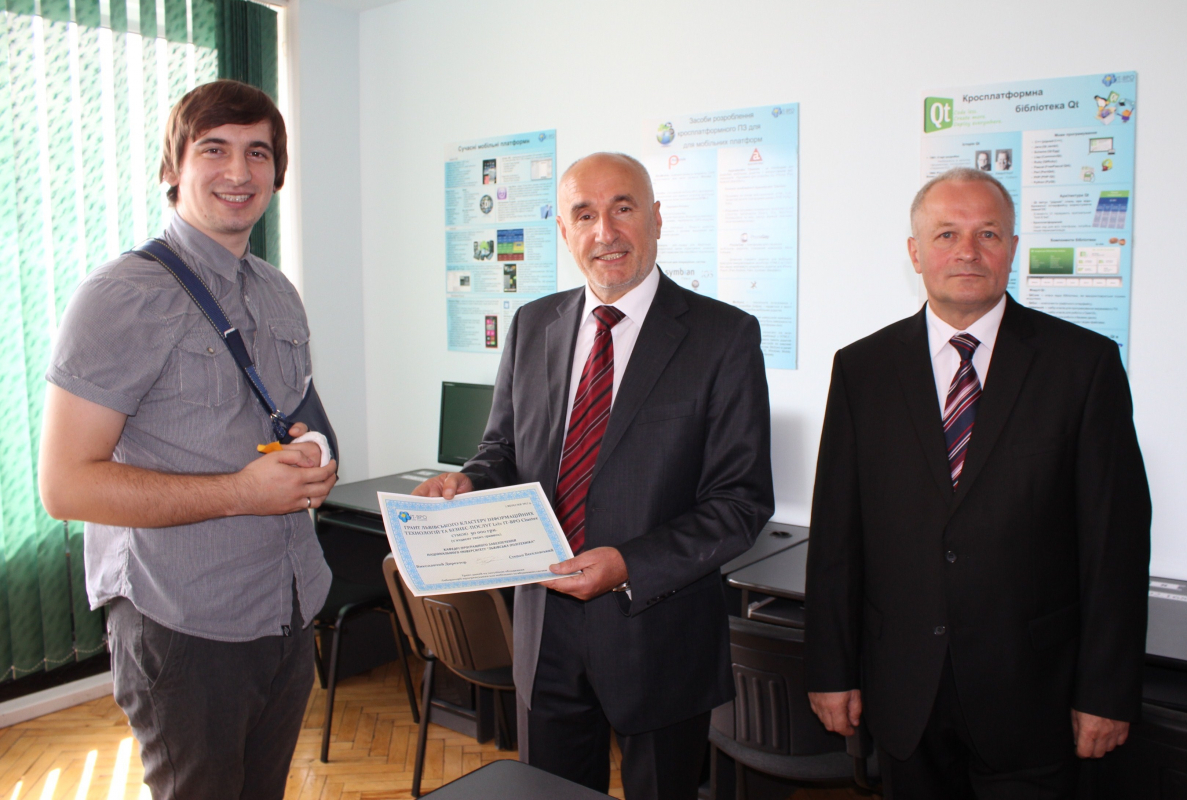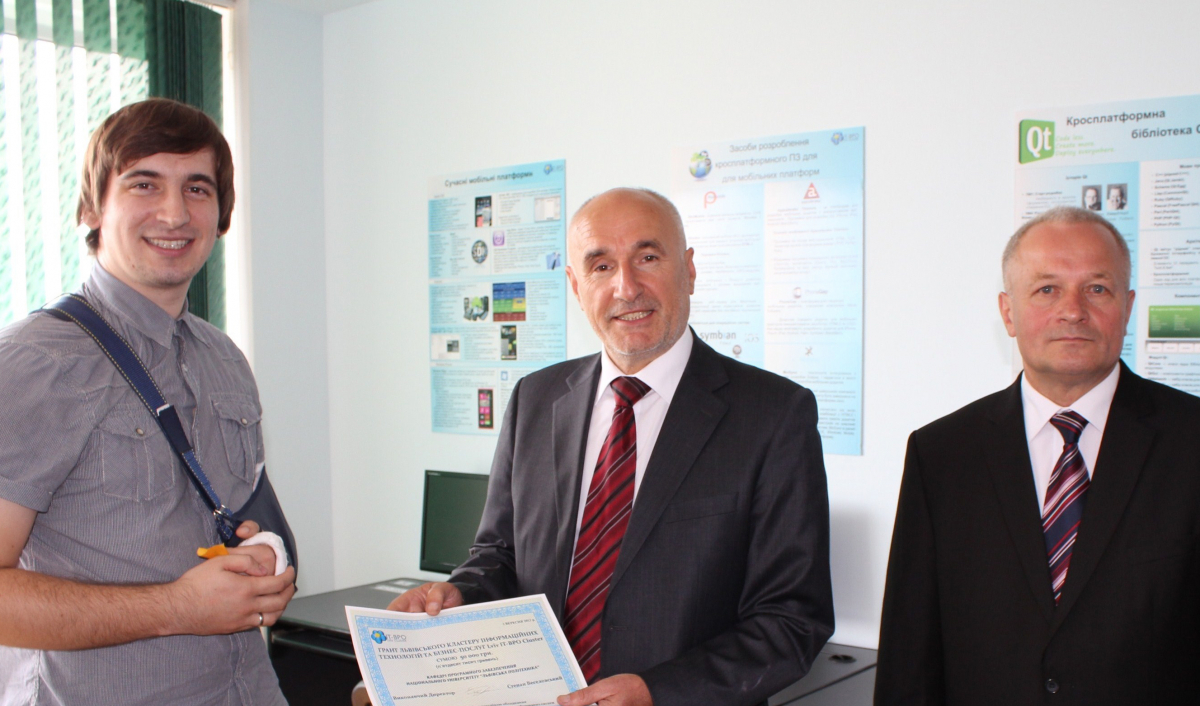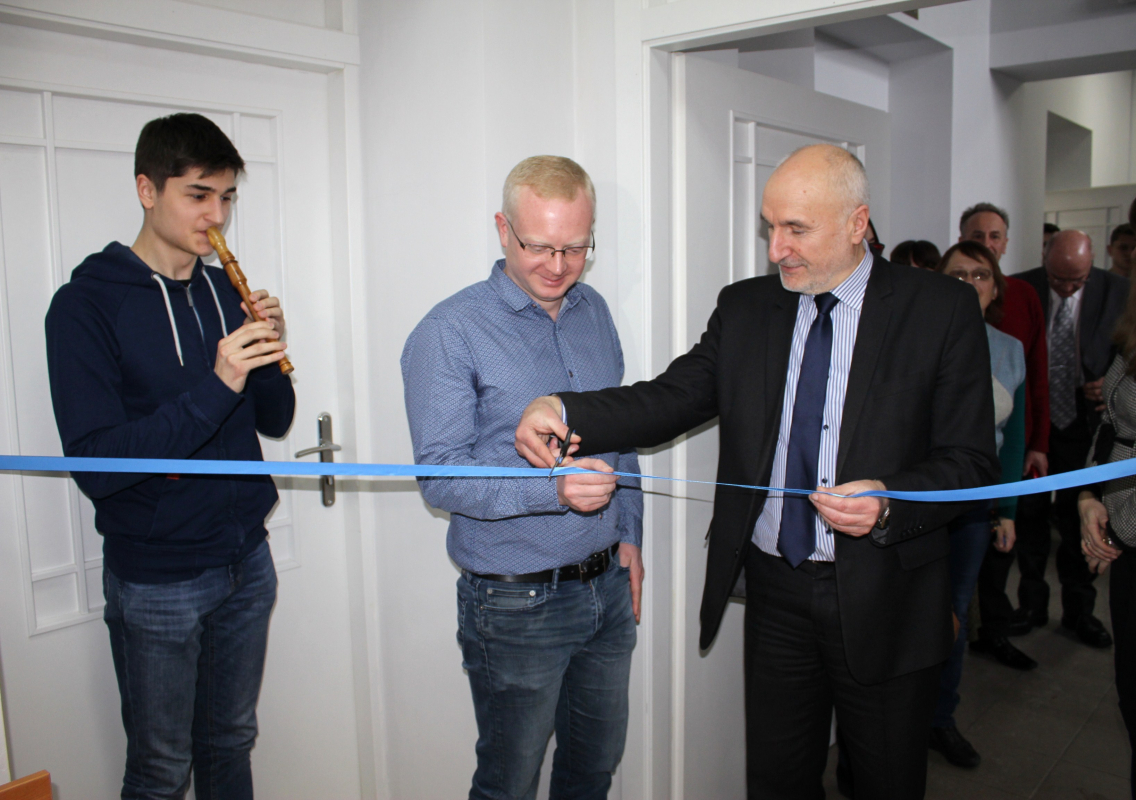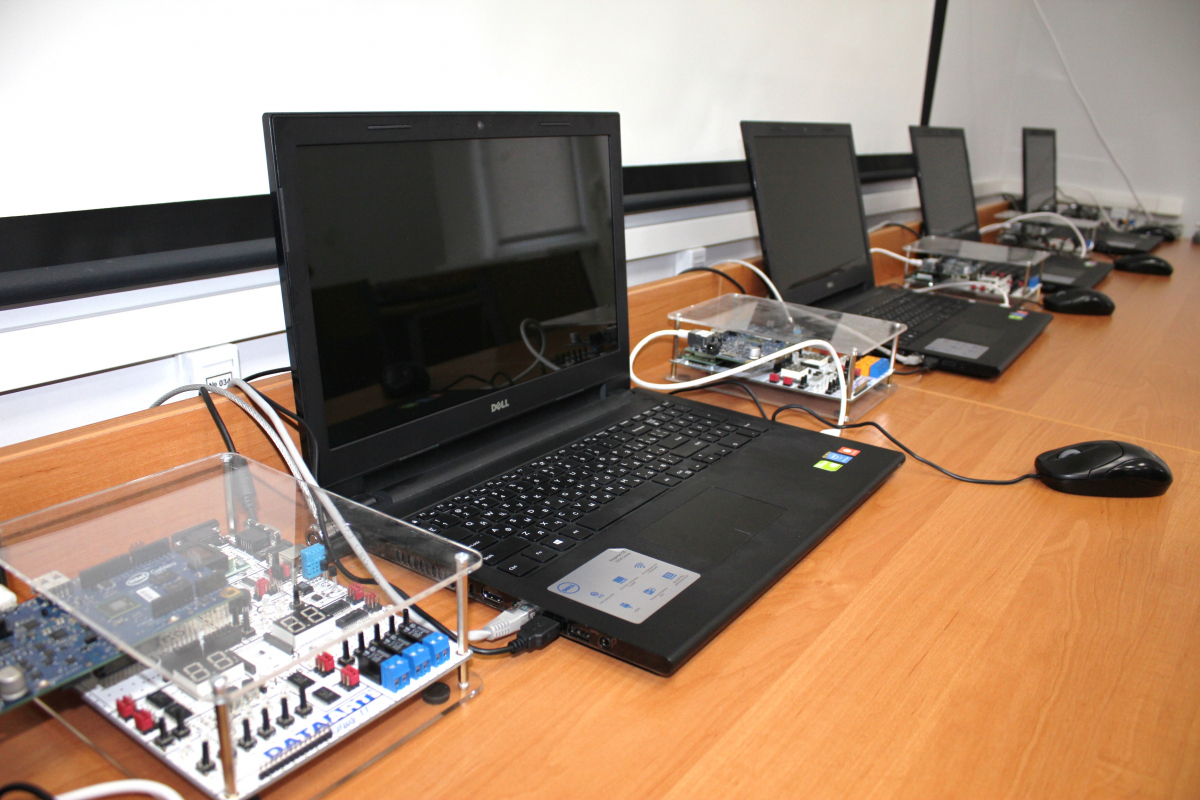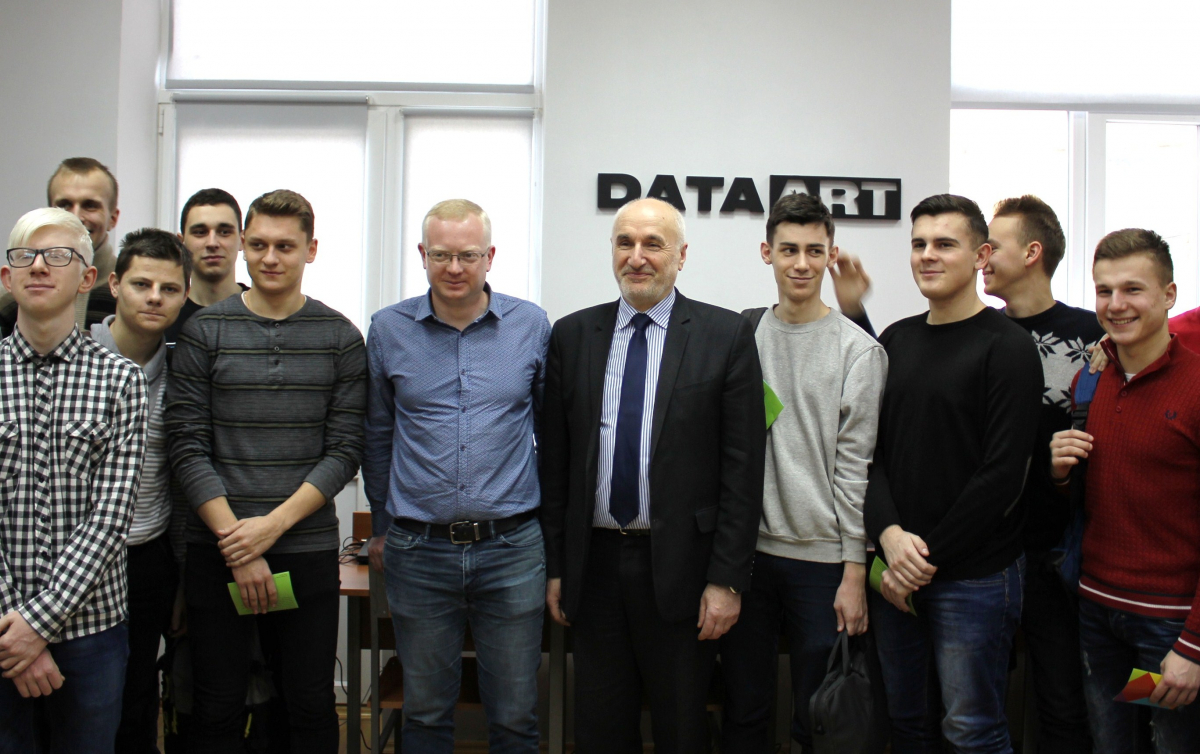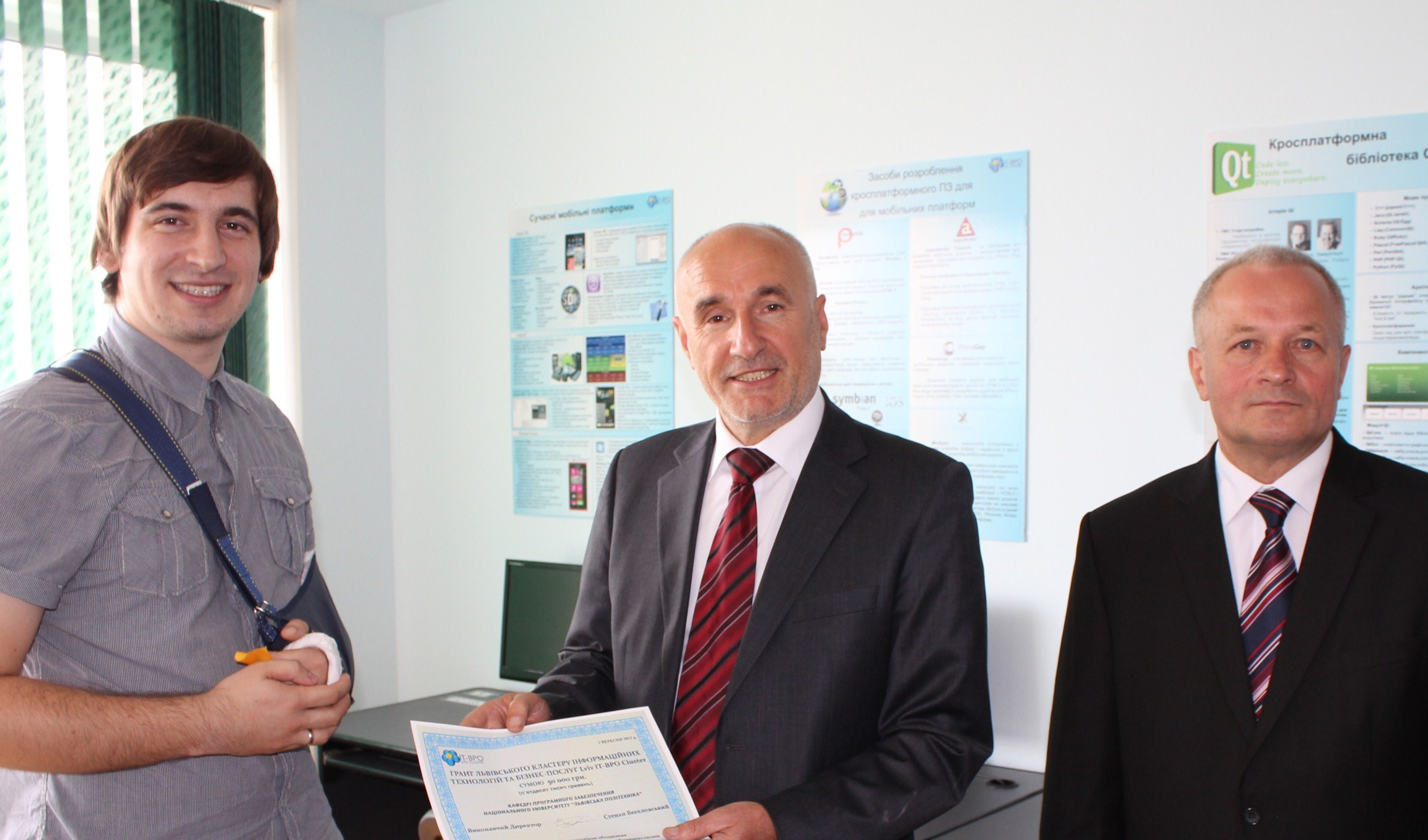Professor Dmytro Fedasyuk, Lviv Polytechnic Vice-Rector for Undergraduate Education, and Andriy Peleshchyshyn, Head of the Academic Board Commission for Informatization and Computerization, reported on carrying out the program of informatization in the University at one of the recent Academic Board meetings.
We asked Dmytro Fedasyuk to speak about certain issues in detail. What are the most relevant components and what should be done in the nearest future?
– First of all, – he said, – the educational component is our focus. I mean providing students and lecturers with information services. In order to do this, virtual educational environment, which every lecturer fill with the materials in his/her subject, has been developed for several years now. The material includes lectures, presentations, methodological recommendations for laboratory work, tests for self-assessment and tests which enable the lecturer to assess students’ knowledge of certain topics.
At the moment, this functional is being improved so that the tools for lecturer-student communication can be expanded. The lecturer can give a student a certain type of assignment, which has to be completed within a certain period of time. Then the lecturer can monitor the progress of the student and assess the result by putting a grade in the electronic register.
Last September, we held special classes for first-year students to get them acquainted with IT in the learning process so that they could get used to using these IT for studying as soon as possible. Before the classes, students were given e-mail addresses, login and password, with the help of which they could use all the existing services, and later we were able to teach students within a short period of time how to use these tools. On the other hand, it was a stimulus for those lecturers that did not use electronic communication with students for various reasons. Since now, students demand and lecturers have to do it.
– This is not the first time we have been talking about virtual educational environment. What is its current state?
– At the moment, there are almost 2,000 subjects fully represented in the virtual educational environment. Lecturers receive certificates, signed by the administration, which proves that the complex meets all modern requirements. We have moved further – we assess the activity of using this or that educational methodological complex through analyzing the number of students registered for this or that subject. Now it is not enough just to place this complex. It is important whether it is interesting for students and whether students use this virtual educational environment on a regular basis. Moreover, the latest version that has been installed (it is a new version of the Moodle platform), enables us to analyze how many students are using this content and how frequently. We plan to give bonuses to lecturers after this complex has been tested and its active usage has been proven.
The second important aspect of this problem lies in the fact that through developing electronic learning tools we started to train lecturers to make videos and video lectures. As part of the lecture, the lecturer can show a video shot somewhere at a factory or in a laboratory. Last autumn, we began training lecturers for such work. Almost 100 people did a special course, at the end of which they made independent videos using a specialized software system Camtasia Studio. In January, 76 lecturers received certificates of training. Videos cannot substitute the presence of the lecturer. However, they facilitate the perception of the material. This enables students to conduct virtual laboratory work, for example, connected with some chemical reactions saving material resources, avoiding harmful and hazardous industrial processes. Having watched the relevant video, students can do all the necessary calculations on their own.
– Can you say that electronic tools significantly expand the opportunities and efficiency of extramural and distance learning?
– Definitely. You know that Lviv Polytechnic has several educational consulting points in Khmelnytskyy, Chernivtsi, Novovolynsk, Khust. Right now, a distance learning student does not have to come to these cities to attend lectures so often. Students can listen to the lecture even using their home PCs, when the lecturer is delivering it from a special working station equipped with a web-camera at the University through Internet. This is so called Webinar.
– Which aspects of informatization did you try to attract attention of the University Academic Board to?
– There several aspects. They include wider use of electronic tools in introducing and improving informatization for administration and management of the University, the system of e-documents. It is important not only to register input and output correspondence in the database, but also to monitor whether this or that task has been completed by a certain person. Another essential issue is expanding Wi-Fi network. We already have several educational buildings with such communication points. At the moment, a project for such wireless network is being developed for buildings 4, 5 and 20, in order to continuously expand campus area with Wi-Fi connection. Nowadays more and more students and lecturers are using tablets and smartphones in their work.
– I believe there is no need to give all the Academic Board resolution items and Rector’s decree on this issue in detail. However, we should mention certain things which contain certain tasks for the relevant officials.
– There are several things I would like to quote,
«Directors of the Educational Institutes and Heads of the Departments should control the development and use of educational methodological materials in the virtual educational environment.
They should give bonuses to lecturers for creating educational methodological complexes of subjects in virtual educational environment after they have been tested in the learning process based on the analysis of the results of user activity.
They should plan creating work stations at the departments so that lecturers could participate in webinars, video lectures, and make videos for 2017–2018.»
Volodymyr Krayovskyy, Vice-Rector for Training and Production, has been assigned the task of completing the work on creating rooms for video lectures in the University computer complex by September 1, 2017.
Vice-Rector Oleh Davydchak, Directors of the Institute of Computer Sciences and Information Technologies and the Institute of Economics and Management together with the department for education quality management system functioning have to test students’ submitting reports of laboratory work and testing through Lviv Polytechnic virtual educational environment tools as well keeping electronic registers of continuous assessment in 2017–2018.
By July 1, 2017, people that use the system of e-documents in the educational institutes and other university units have to be trained.
Academic Board meeting reports, discussion, Academic Board resolution and Rector’s decree prove that the process of improving University informatization in all its aspects will speed up under continuous control of all those interested, leaders of different levels, Rector Yuriy Bobalo, in particular.
